5710 and 21st Century Activism
The 21st century has been distinguished by an increasingly formal relationship between the University and its LGBTQ students. When the University issued a Diversity statement in 2004 that did not include the LGBTQ community, a group of students and staff responded by creating a set of recommendations for improving LGBTQ student life at the University. Those recommendations led to the creation of the 5710 Diversity Center on South Woodlawn, a space that combines the Office of Multicultural Student Affairs and the Office of LGBTQ Student Life. The combination is not an accident. Antonia Clifford (AB 2010, AM 2011) remembered "LGBTQ students of color forcing this issue and wanting this to be a joint space and wanting to make that work, and the reality of making that work was so beautiful. And painful."
The shared space responds to a long history of LGBTQ students of color feeling isolated in their overlapping identities. Nayan Shah (PhD 1995) recalled that when he was here, "to be out and gay at the University of Chicago seemed to be white male," while Ann Kwong, (AB 1980, PhD 1986), "really didn't think I was gay when I was in Chicago because of how I felt was so far from the white lesbians that I saw."
LGBTQ students often have good queer fun, as in the photos of the 2010 Genderfuck party, but they also continue to fight to make the University a place where all students can safely pursue the "life of the mind." Trans* students and their allies have been especially active in improving campus conditions in the last decade. Students have successfully fought for an Open Housing policy, where students can live with a roommate of any gender, and a preferred names policy. Another goal, symbolized by the "Hello" nametag in the case, is to normalize asking people about their preferred gender pronouns instead of making assumptions based on gender-normative cues. Objects in this case show some of the ways that current students continue to organize, particularly around intersectional identities.
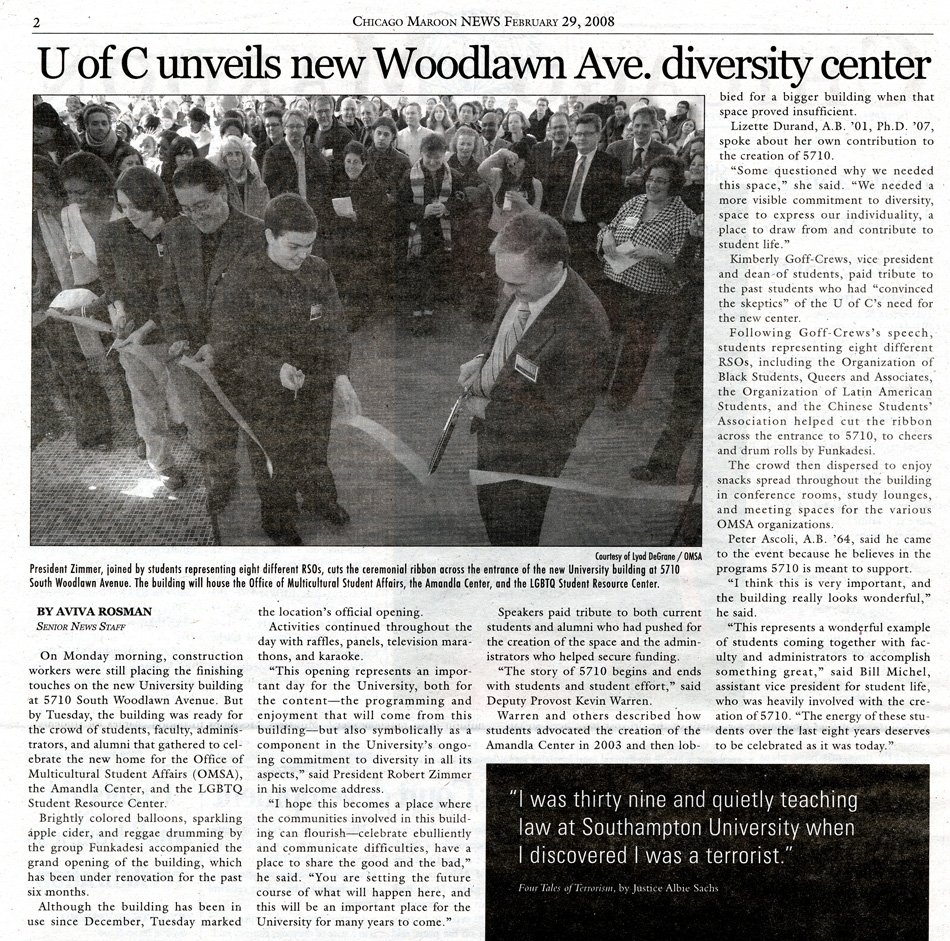
Aviva Rosman
Chicago Maroon Feb 29th, 2008, Vol. 119, No. 31
The Office of LGBTQ Student Life was founded in 2008 to serve LGBTQ students, questioning students, and allies in the College and graduate and professional schools. It hosts the Q Groups, discussion groups for a wide variety of identities at 5710. Also in 2008, the LGBT Alumni Network was created to foster and strengthen the bond between the University of Chicago and its alumni who identify as lesbian, gay, bisexual, or transgender (LGBT).

Broadside, 2012
Closeted/Out on the Quadrangles Office of LGTBQ Student Life Records
The Office of LGBTQ Student Life was founded in 2008 to serve LGBTQ students, questioning students, and allies in the College and graduate and professional schools. It hosts the Q Groups, discussion groups for a wide variety of sexual identities at 5710. Also in 2008, the LGBT Alumni Network was created to foster and strengthen the bond between the University of Chicago and its alumni who identify as lesbian, gay, bisexual, or transgender (LGBT).
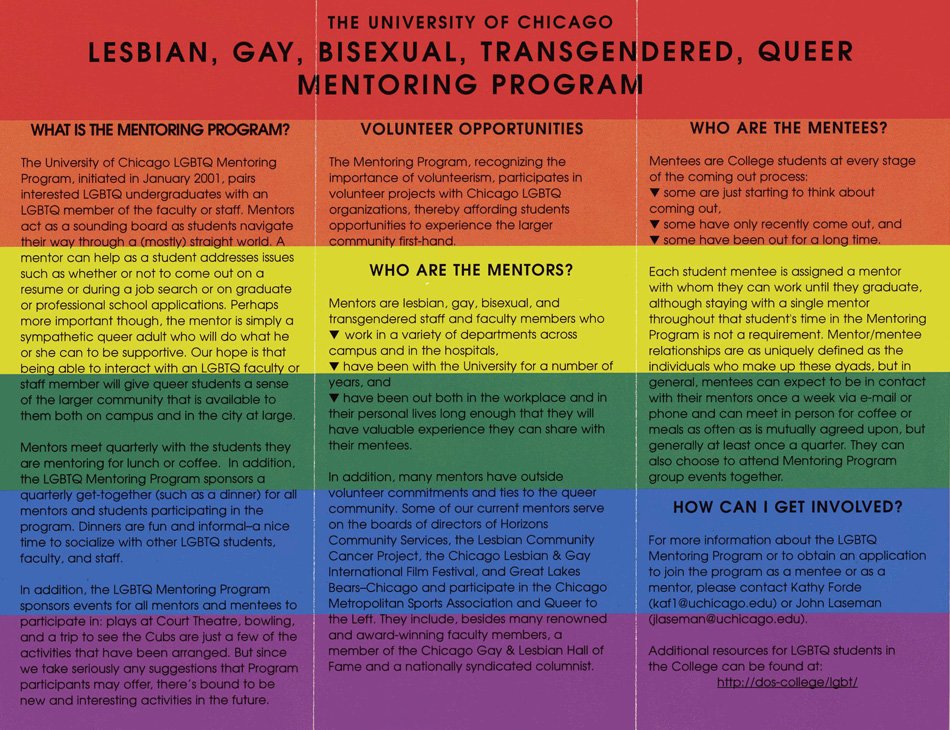
Pamphlet, 2001
Closeted/Out on the Quadrangles Office of LGTBQ Student Life
The LGBTQ Mentoring Program was founded in 2001. Kathy Forde, now Associate Dean of Students in the College, worked with Jim Howley, a graduate career counselor at the University, to create the program because she saw that many LGBTQ college students had a hard time imagining adult queer lives. The mentoring program can be seen as a formalized recreation of the intergenerational social world that Howard Brown and Roger Weiss facilitated for gay men in Hyde Park from the 1960s to the 1990s.
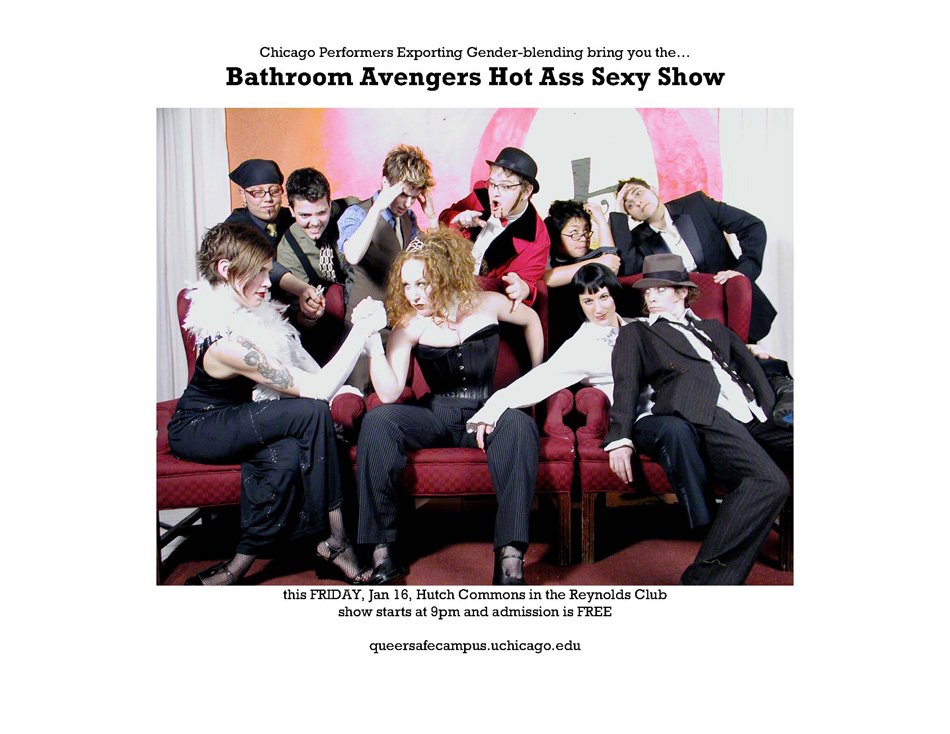
Broadside, 2005
Taken from https://web.archive.org/web/20100612115501/http://queeraction.uchicago.edu/posters.html
A 2005 campaign by the Coalition for a Queer Safe Campus won several designated gender-neutral bathrooms on campus, which provide space for trans* and genderqueer students who experience harassment and gender policing in gendered bathrooms. Moon Duchin (PhD 2005) recalls the impetus for the campaign: "there was a big wave of transitions happening in the lesbian community, there were just lots of people coming out as F to M, or somewhere along a transitioning path," and they found bathrooms an "incredibly unpleasant battleground."
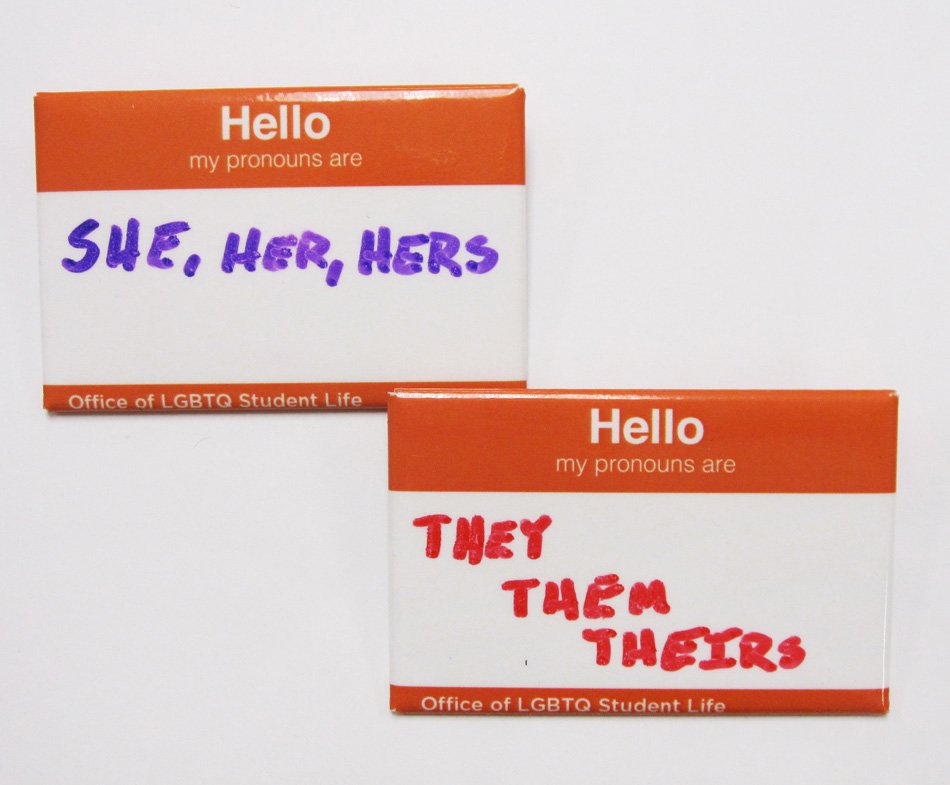
Closeted/Out on the Quadrangles Office of LGTBQ Student Life Records
LGBTQ students often have good queer fun, as in the photos of the 2010 Genderfuck party, but they also continue to fight to make the University a place where all students can safely pursue the "life of the mind." Trans* students and their allies have been active in improving campus conditions in the last decade. Students have successfully fought for an Open Housing policy, where students can live with a roommate of any gender, and a preferred names policy. Another goal, symbolized by the "Hello" nametag in the case, is to normalize asking people about their preferred gender pronouns instead of making assumptions based on gender-normative cues.
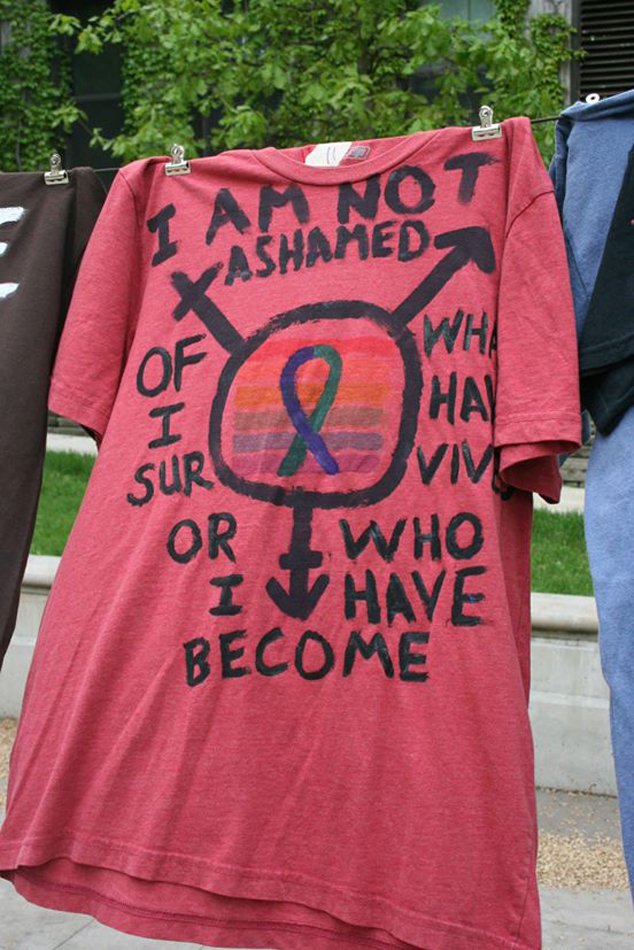
Photograph
Closeted/Out on the Quadrangles Collection
Donated by Mich Elliott
Objects in this case show some of the ways that current students continue to organize, particularly around intersectional identities. The 2011 Disorientation Guide informs new students about continuing struggles to make the University a better place, while the Clothesline Project t-shirt reminds us that ongoing campaigns to improve University policy for survivors of sexual assault also affect LGBTQ students. These campaigns explicitly challenge the exaltation of the "life of the mind"—for example, Olivia Ortiz coined the #liabilityofthemind hashtag on Twitter in 2014 to call attention to what was perceived as inadequate administrative response to sexual assault and racial harassment.
